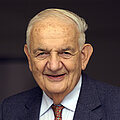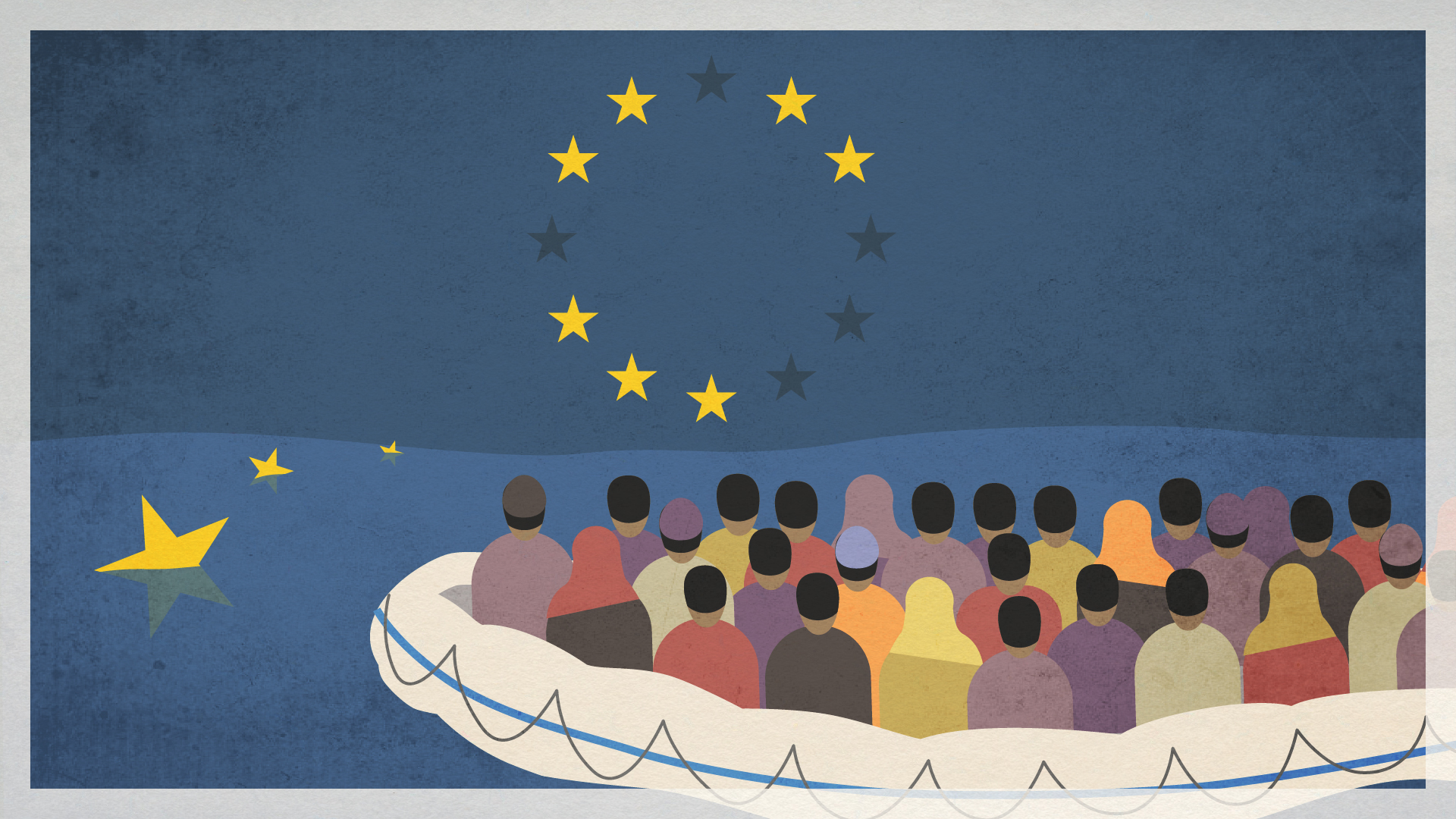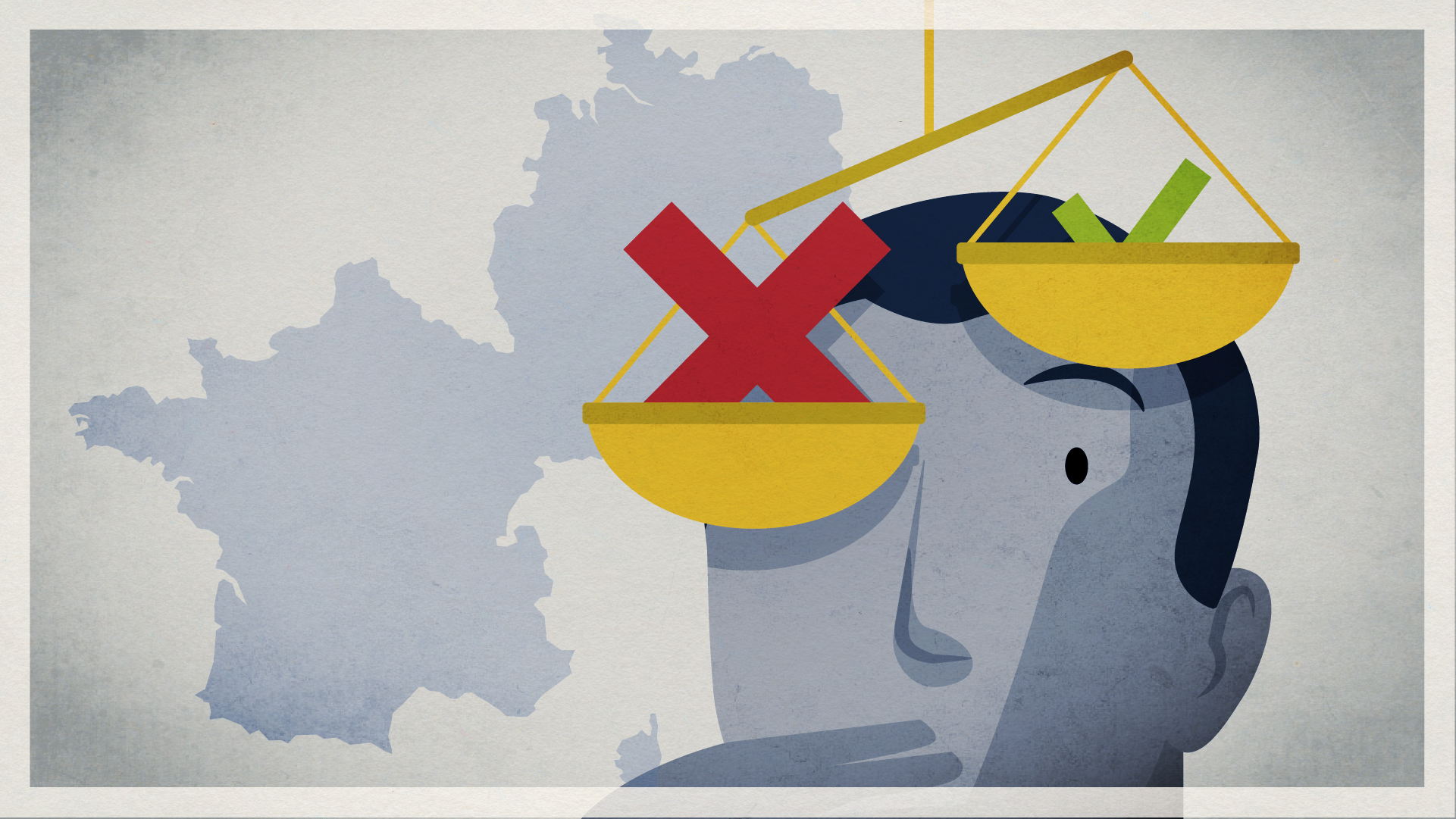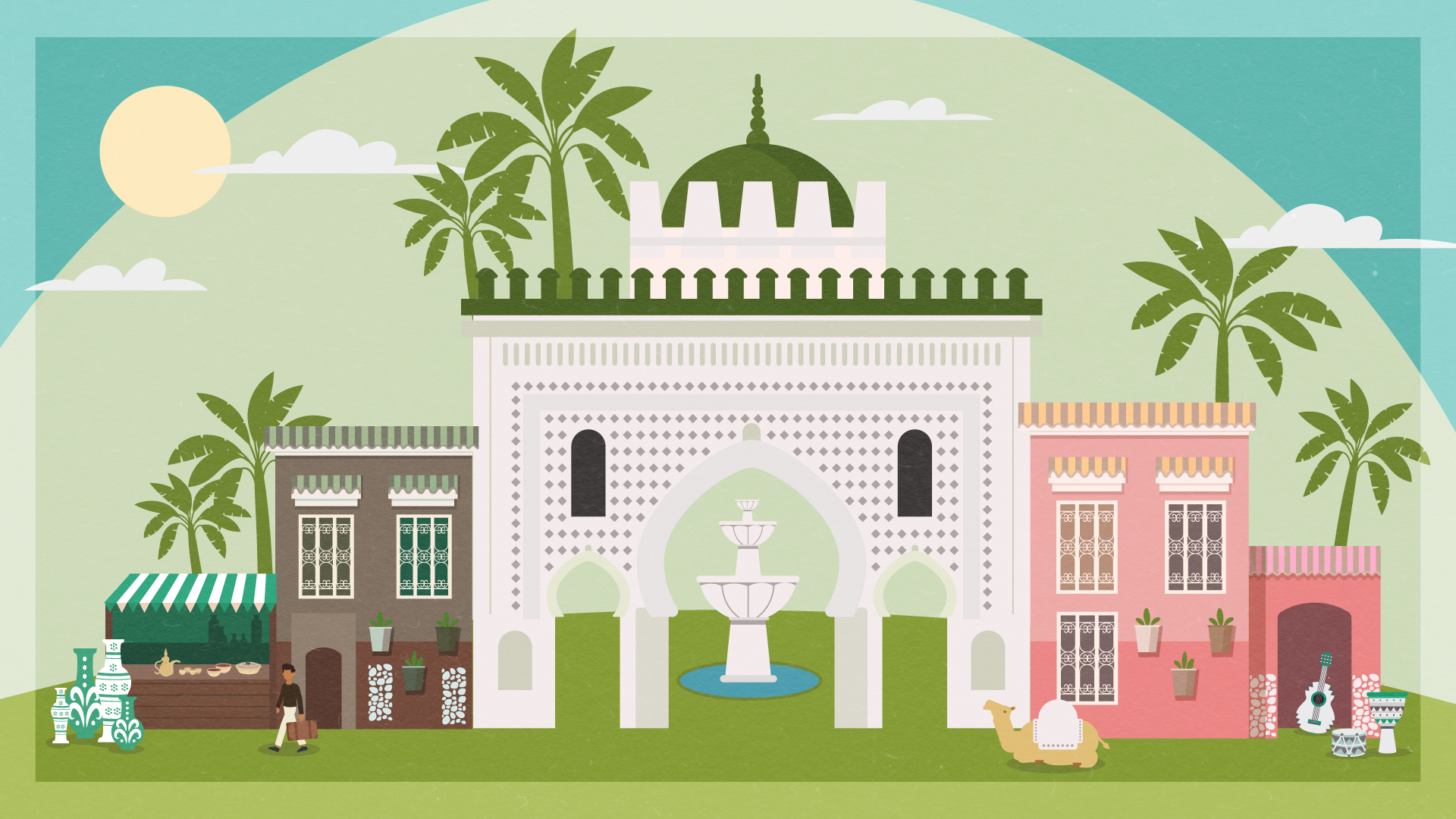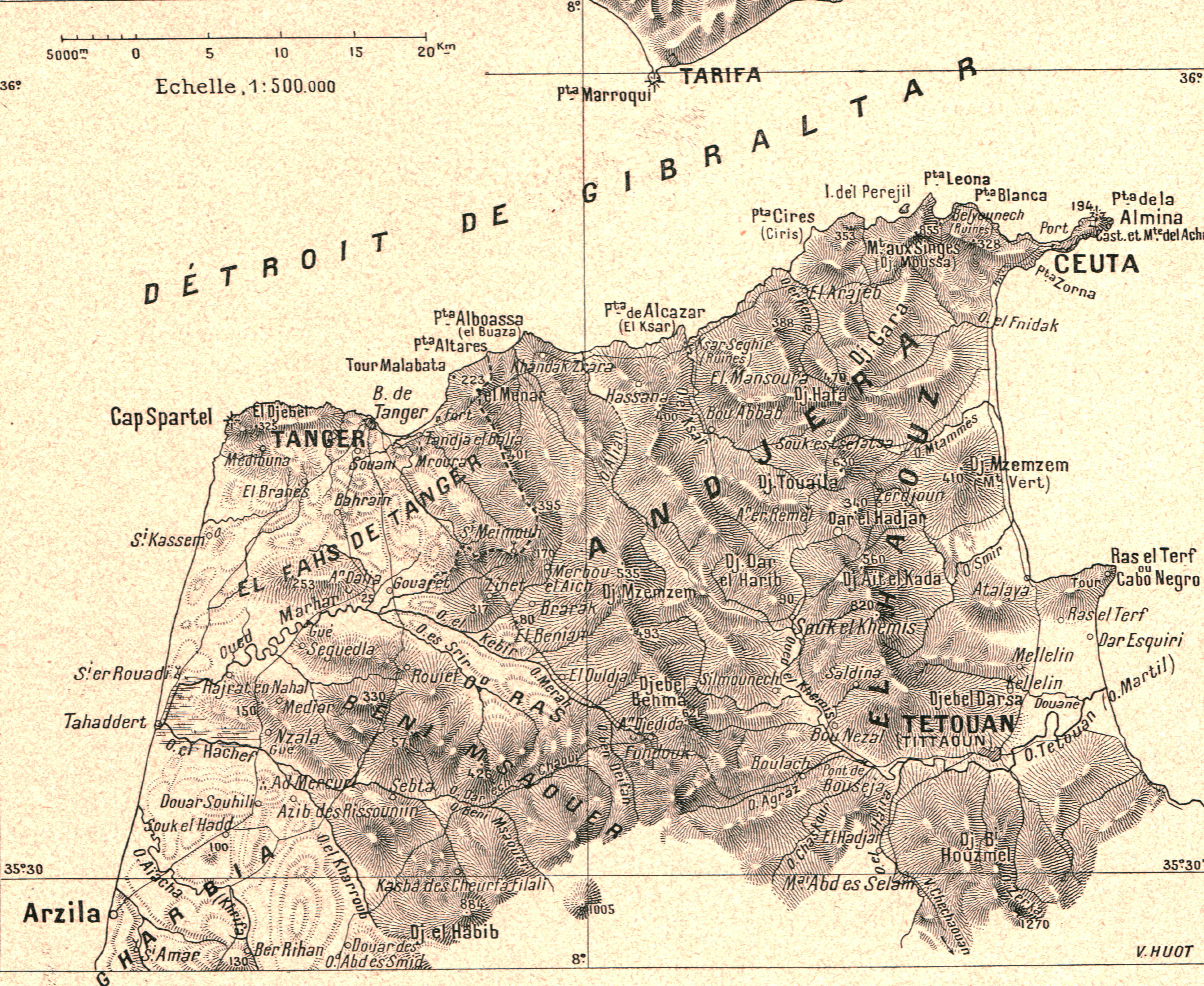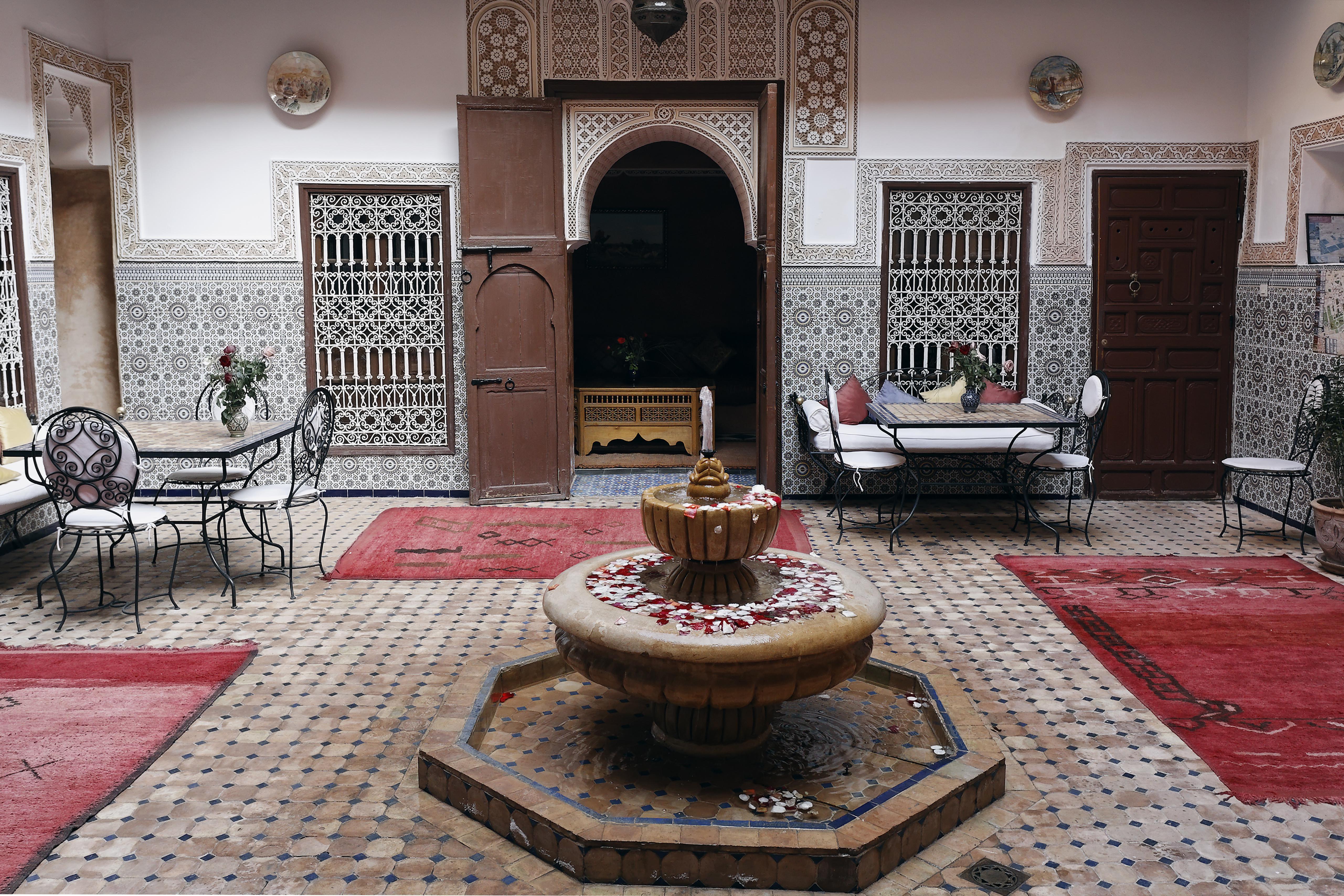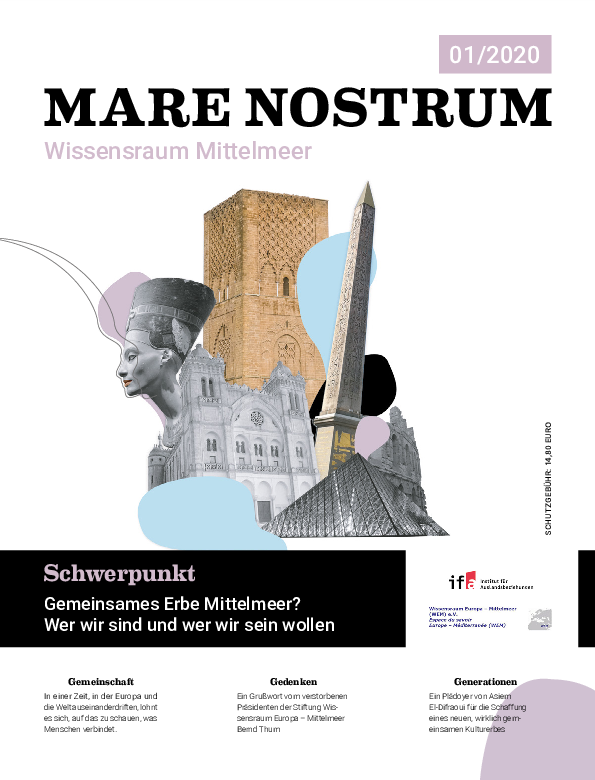There’s no doubt that Europe’s identity would have been very different had it not been for Jean Monnet – with three more men before him, three men beside him, a historical fact and a human influence. The Union of European Federalists was founded in 1947. Its three co-founders had all fought against Hitler and Mussolini, and two had been severely punished for it. The Frenchman Henri Frenay, born in 1905, had headed up a major resistance movement called Combat. The Italian Altero Spinelli, born in 1907, was sentenced to twelve years in prison in 1927. Until his death in 1986, he played a leading role in Europe, particularly in the European Parliament in Strasbourg. German-born Eugen Kogon, born in 1903, was held prisoner in the Buchenwald concentration camp from September 1939 until it was liberated in 1945.
These three men were living proof that post-war Europe would be the antithesis of Hitler’s Europe and have a radically different identity. Three older men from the same countries aided and abetted Monnet. It is still said that they are united by their Catholic identity. But that was less important than their identity of being born on a border, which is why they were determined to overcome borders.
In June 1940 he wrote the text of a proposal that was then brought to London by Brigadier General Charles de Gaulle. A Franco-British nation was to be created, with a common parliament and joint army. De Gaulle made little mention of this proposal in later years. In 1955, Jean Monnet stepped down as president of the High Authority of the European Coal and Steel Community in order to take an unusual step towards moving Europe forward as a community.
Not a Statute-Based Organisation
The Action Committee for the United States of Europe was not a statute-based organisation. Jean Monnet brought together political parties and trade unions from the six founding countries until, in 1968, the three main British parties with George Brown, Denis Healey, Roy Jenkins and Edward Heath, accepted the committee’s invitation to join.
Jean Monnet’s main success in terms of influence was converting the SPD to Adenauer’s European policy. The DGB (German Trade Union Confederation) no longer needed to be converted. Walter Freitag, Hans Oskar Vetter and Otto Brenner were on the committee, which also included Erich Ollenhauer, Willy Brandt and Herbert Wehner, together with Kurt-Georg Kiesinger, Helmut Kohl, Franz Josef Strauss and Walter Scheel.
Jean Monnet’s main success in terms of influence was converting the SPD to Adenauer’s European policy.
Part of the growing Euroscepticism is based on people’s ignorance about European institutions. The word Brussels has a negative connotation: it’s the home of ignorant, harmful officials. In fact, there are 33,000, of whom 22,000 work in Brussels. Let’s dare to compare this with the city of Hamburg, which pays salaries to 70,000 people. What are the powers of the Council, the Commission, Parliament and the Court of Justice? How do they exert them?
The word Brussels has a negative connotation: it’s the home of ignorant, harmful officials. In fact, there are 33,000, of whom 22,000 work in Brussels. Let’s dare to compare this with the city of Hamburg, which pays salaries to 70,000 people.
But apparently ‘Brussels’ isn’t always a bad word. It’s good if it abolishes the regulations on milk production. But if that doesn’t work, Brussels is only good if it reintroduces the regulations! Of course, the average person can’t be expected to read and digest all 358 articles of the Lisbon Treaty, but they should be able to understand a simplified version, particularly if – laudably – they vote in the European Parliament elections.
But would that be enough to give the European Union a clear identity – if only in the eyes of voters? They certainly see it as a whole to which Germany is not affiliated, but by which it is enclosed. That’s why school textbooks should contain Article 10 of the thick German Reunification Treaty, with its two fundamental observations:
- All European law applies to the enlarged Germany.
- Legislative acts of the European Communities whose implementation or execution comes under the responsibility of the Länder shall be implemented or executed by the latter through provisions under Land law.
The powerful president of the Council is faceless because the presidency is held for a sixmonth term in turn by each Member State. Germany will take its turn again in the second half of 2020. The Union’s real power lies with the Council in the various formations of the Committee of Ministers. Decisions are taken by qualified majority, which means at least 55% of the members of the Council, comprising at least 15 Member States if they represent 65% of the population of the Union. In reality, the Council takes decisions on the basis of proposals from what is perhaps the most important body in the Union, COREPER (the Committee of Permanent Representatives of the Member States).
So the treaty decides nothing in this area and points to a dual future! Foreign policy is different, but not much better. Of course, the Office of the EU High Representative for Foreign Affairs and Security Policy was created, with a seat as Vice-President of the Commission and a large administrative apparatus. From 2009 to 2014, the post was held by Lady Catherine Ashton, an Englishwoman with no sense of transnationality, no prior international experience and no language skills.
On 30 August 2014, the Council appointed the Italian Federica Mogherini to a five-year term. She had been Foreign Minister in the Matteo Renzi government since February of that year. She settled into the job more quickly and was more ‘visible’ than her predecessor, but anyone who believes Berlin, Paris or even Rome would allow her to dictate their national foreign policy – such as relations with Russia or the US – had another think coming.
Anyone who believes Berlin, Paris or even Rome would allow her to dictate their national foreign policy – such as relations with Russia or the US – had another think coming.
The EU institution with the greatest potential to create identity should actually be the Parliament. It is the only parliament in the world that can truly be called transnational. The deputies are elected in the different Member States, but they work in crossnational political groups rather than in national factions.
The fact that social democratic and centre-right parliamentary groups make up 55% of the 751 MEPs, with 191 and 221 seats respectively, has an impact on every aspect of the Parliament’s work. The number of MEPs from each country is largely determined by population, so Germany has 96, France 74, Italy and the UK 70, Spain 54, Poland 51 and up to 6 each for Estonia, Cyprus, Luxembourg and Malta. Each treaty has progressively expanded the powers of the European Parliament. By its eighth parliamentary term (2014–2019) it had become one of the cornerstones of the ‘institutional triangle’ that shapes the EU’s legislation.
The EU institution with the greatest potential to create identity should actually be the Parliament. It is the only parliament in the world that can truly be called transnational.
It also conducts hearings of Commissioners-designate for the Commission in Brussels and can bring down the whole Commission by vetoing just one of them. Parliament also elects the President of the Commission. The German Social Democrat politician Martin Schulz became President of the European Parliament in January 2012 and did a great deal to raise awareness of Parliament and its powers, and to enforce them. The Parliament is in a worse position now that Schulz has returned to German politics.
After some undignified backroom dealings, his successor was decided upon in such a way that the new President lacked prestige and no longer exercised any power. It was the Italian Antonio Tajani, who co-founded the not exactly moderate Forza Italia party with Silvio Berlusconi. He acted as Berlusconi’s spokesman before becoming an EU Commissioner and later Vice-President of the Parliament. The Commission now plays a stronger role, because it alone has the power to propose new regulations. It is these regulations that – even though they have to be approved by the Council and Parliament – govern many aspects of the daily lives of citizens, organisations and Member States.
There should still be talk of economic identity. Mario Draghi, whether admired or opposed, can be seen as a kind of embodiment of economic Europe, based on the euro. For many decades, Wolfgang Schäuble has argued in favour of the creation of a multi-speed Europe. Those who are keen to move forward should be free take the initiative, provided that the institutions established in this way are open to all other Member States. Today, 19 of the 28 Member States have the euro as their currency. Malta (2008), Slovakia (2009), Estonia (2011) and Latvia (2014) are the most recent countries to adopt it. No country that adopted the euro has ever reverted to its national currency. So the attractiveness of an EU that is in a state of becoming is stronger than generally realised.
No country that adopted the euro has ever reverted to its national currency. So the attractiveness of an EU that is in a state of becoming is stronger than generally realised.
Source: Alfred Grosser (2017): Le Mensch. Die Ethik der Identitäten. Bonn: Dietz. Published with the kind permission of Dietz publishing house in Bonn.
